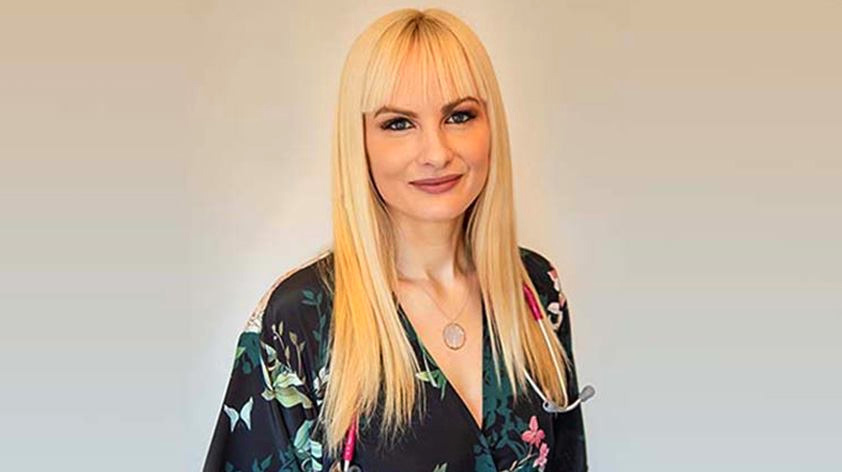
Gemma Newman, aka the ‘Plant Power Doctor’ is a woman on a mission. Having graduated from the University of Wales College of Medicine, she has worked in medicine since 2004 and has been serving as Senior Partner at NHS family medical practice, The Orchard Surgery in Ashford, Middlesex for 11 years. She has experience in endocrinology, paediatrics, obstetrics and gynaecology, psychiatry, general surgery, urology, vascular surgery, rehabilitation medicine and elderly care.
Through her medical practice she has come to realise that body, mind and soul are not separate, and that it is only in addressing the root causes of stress and disconnection that we can truly heal, from the inside out. She has a special interest in holistic health, plant-based nutrition, and lifestyle medicine. She is also interested in the field of energetic healing, being a qualified Jikiden and Western-style Reiki practitioner for the purposes of pain relief.
Fully embracing the plant-based lifestyle along with her husband and two vegan children, she is also passionate about the study of psychology and meditation, and uses techniques she has learned to help her patients change their mindset to facilitate healing.
Her passion for caring and sharing has led to interesting collaborations, from podcasts with vegan ultra-athlete, Rich Roll to best-selling plant-based author Deliciously Ella. Dr Newman has been featured on ITV, Channel 4, Channel 5 and Sky News Sunrise, and has contributed to articles for magazines including Glamour, Zest and Health magazine as well as appearing in the feature film “Vegan 2018”.
We had the recent pleasure of interviewing Dr Newman where she gracefully and humbly shared her professional insights on health, as well as her personal thoughts and ideals on life. Let’s tune in with this compassionate, sensitively aware, plant-powered doctor and hear what she has to say!
Greetings Gemma,
It’s great to connect with you, welcome to Keep Fit Kingdom and thanks so much for taking some time out to share with us.
You’re welcome.
Thanks for connecting with Keep Fit Kingdom! Our mission is to help a billion people reach 100 years of age happily and healthily, your general impressions?
It is an exciting mission. We need grand visions like this for our future!
Background & NHS Career
Indeed, thank you! Okay, so let’s start off with some basics, what made you decide to get into the medical profession?
I have always loved the idea of helping people. When I was a young girl, I got a lot of pleasure out of feeling useful in that way, and helping to connect with people. I was also inspired by my grandmother, my father’s mother was a doctor, and she would share tales of when she was a GP in South Africa and in Australia.
It sounded like a really interesting career, as you would never know who you’d see, and you would get to know people and their families over time, that really resonated with me. I knew it would be a really rewarding way to spend my career, being of service, wanting people to feel better in their lives.
It is so nice to have work with meaning and purpose. Although you don’t need to be in the so called ‘caring profession’ to care. It doesn’t have to be a big thing. Some people worry that if they don’t have a career that sounds like they are doing something world-changing, that they aren’t contributing. Yet it can be in the smallest act of kindness that true change happens.
What’s the main focus of your particular work right now, what are you aiming to accomplish?
I am still a GP, and as a generalist, I see people from cradle to grave, and can’t choose patients based on what they come in with. They just come in and I help with whatever they present to me, but outside my NHS work I’m also interested in researching plant-based nutrition and holistic health, that’s an area of huge passion for me.
I’m aiming to accomplish helping more people to their maximum health. My medical training was invaluable, but it was really a toolbox that was half full, and I wanted to be able to use other modalities to help people to prevent illness instead of treating illnesses they already have.
- Dr Gemma discusses stress with Dr Rangan Chatterjee
- Dr Gemma at the races
- Doctor Gemma glowing with health you can too 3
Sounds completely logical. How do you think the landscape of healthcare will evolve over the next 5 years?
I guess in the UK it depends a lot on the politics and the funding. I should imagine there will be a lot more teleconsultations and a lot more use of other healthcare professionals as adjuncts to the clinician, so, physician assistants, paramedics and specialised nurses. Because the training and the funding are not efficient for the amount of chronic disease that we currently face.
I imagine a lot of GPs are swamped with their workloads right now.
Yes, a lot of GPs are unhappy because they feel overloaded and unable to cope with the workload, which leads to feelings of overwhelm among my colleagues unfortunately. Which then of course means that the patients do not get someone who is entirely as focused as they could be, helping them to heal. It is hard on the doctors, the system and the patients.
Bringing More Holistic Health into the NHS
The next question ties into that, if you could change one thing in the NHS right now, what would it be?
I would make sure that there were more GPs, less bureaucracy and the ability to increase the consultation time to fifteen minutes. And that, in the broadest sense, we have more of an emphasis on prevention, training on prevention at medical school and beyond.
I would also encourage the change in agriculture necessary to support our population long term into health, which would involve subsidising agricultural practices, and stopping the subsidisation of the animal agricultural industry. To make healthy foods affordable and easy to access. Also, looking at it from many different angles, to add in a lot more holistic methods as a part of the mainstream approach to the prevention of illness.
On Becoming a Plant-Powered GP
Can you tell us a bit about yourself before you became a plant-powered GP, was there a single major factor that triggered the change?
I always wanted to help people find ways to heal, so I was interested in diet, exercise, psychology and solution- focused therapeutic approaches for my patients. But it was when I realised that my husband was actually getting a lot of benefit from a plant-based diet that I delved into research in this area.
Before I became a plant-powered GP, I was basically giving patients the best advice I could give but not nutritional advice. Just general tips and a listening ear, eventually helping them to change their lives through empathy and the normal sort of medical path.
When my husband got some amazing results and gains from his own plant-based diet, he decided to go fully plant-based. That started when he was running the marathon and kept on getting injured and getting inflammation. He decided to look up what the experts did, he followed the likes of Rich Roll and Scott Jurek and realised that the ultimate marathon runners tended to do very well when they were eating plant-based.
He decided to do that and improved his marathon running time by an hour and ten minutes. I thought that was quite significant and as a doctor I should probably try and learn as much as I could about why. So that is when I got into the research which started a bit of an odyssey, if you like, into understanding more and more of the benefits of plant-based nutrition. Not only in terms of exercise recovery but also in the prevention of disease.
So once I discovered this, I found it benefited me, and my life personally. I was able to reduce my cholesterol to normal levels and my aches and pains from when I was running stopped, and I overall felt healthier. It was a wonderful change for me. So when I decided to talk to my patients about it, that was amazing because I could now see real changes that they were able to make as well. They were able to improve their hypertension, diabetes, menopausal symptoms, period pains, well-being and depression. One gentleman also managed to reverse his low grade prostate cancer.
Impressive, especially that you can benefit your patients with personal experience, that you’ve been there.
Yes, that’s been very helpful. Though I do not think that all doctors need to do that, it would limit their practice. Having said that, it is difficult, because we expect perfection from our physicians and really, physicians are just as fallible as the rest of the population.
I might have a patient that goes to the gym four times-a-week, which is beneficial, but I will not tell everyone to do that, and I don’t do that either. But yes, it’s very helpful to know the details first hand and practice what you preach!
Overcoming Obstacles to Plant-Power
Being a doctor in a world where it’s still seen as controversial to recommend a plant-based diet, what obstacles do you have to face and battle in order to continue doing what you believe in?
The obstacles are being around colleagues who haven’t caught up with the data. And also having patients that would benefit, but are not ready. So I always aim to meet people where they’re at, and I think health is often a sliding scale. If I were to go on too strong on a particular message, it may alienate some people. So the biggest obstacles I have to face would be the obstacles of the person’s own imagination or motivation to change. And once those obstacles are gently put on one side, then that is where the magic can really happen.
Food as Medicine
A fine line. How necessary do you believe prescription medications are; do you think it’s possible to dispense with them to a large extent? Should we not instead be seeing proper food as our medicine?
I think that, in the modern age, it’s important that we use every tool that we have as long as we understand the risks and benefits of doing so. Food is so important, because we use it as the building blocks for our body and it is the most concrete way of changing our risk of chronic disease. But I wouldn’t say “no” to medication if it were to benefit my patients as it is important to use whatever we can to help enhance health.
Yes, insulin for instance is not something we can dispense with overnight.
If you’re a Type 1 diabetic, your body doesn’t make insulin, so it wouldn’t be feasible for everybody to dispense with medications. Though I do think it’s possible to reduce medication in people who previously needed them and made significant lifestyle changes.
In the process we could have a lot less people winding up with diseases caused by medication build-up over the years, like Alzheimer’s and dementia.
Absolutely! And what’s not tested in drug trials, is the synergy or the increase of side effects of multiple medications, especially in the elderly populations. It’s something that is hugely underestimated in real medical practice.
- Sage advice available 1
- Dr Gemma with Deliciously Ella Matt and Baby Skye
- Healthy dinner big smile
Fear, Big Pharma & Why Your Own Decisions are So Important
I can imagine. How far do you think fear, politics and/or big pharma influences people into thinking they must rely on medication?
That’s a huge question! I think people often feel disempowered in their bodies. I would love for people to know that mind, body and spirit are all connected, and that they have a lot more autonomy over their health decisions than they think.
I think that the pharmaceutical industry is very powerful, and they have the money to fund studies which can influence the way clinicians think. I don’t think that is all bad, we need to find the balance between developing medications that can be useful and also emphasising the importance of creating health through our lifestyle and the decisions that we make, about ourselves and our bodies.
I suppose fear plays a part in the decision to use medication, yet I think fear plays a larger part in deciding that we are unable to make changes in our day-to-day life that would really help us.
Creating lasting change takes some amount of consistent effort over a period of time before taking hold and becoming habitual.
Yes. And the problem we have, is that the body really believes what we tell it – in order to have healthy DNA, we have genes that turn on and off like Christmas lights, and a lot of our emotions are stored in our bodies. Furthermore, our emotions and beliefs can wire our genes to turn on and off, which controls our body’s experience.
I think it’s important to change our routines, because they remind us of who we feel we are every day, and I think one of the biggest hindrances to change is our habits, the unconscious thoughts and emotions that play out in the actions we take each day. Or of course the things we don’t do. That is more significant in terms of personal change.
I guess many of us could use a life coach to help us change our counterproductive habits.
No doubt we would all benefit from that!
Being Dr Newman: The Challenges & Rewards
What is the most challenging and the most rewarding part of your work?
Well, the most frustrating thing is the enormous amount of admin I have to do. It takes up a lot of my time and energy, without feeling I’m being productive. That’s the most draining!
The most challenging thing is when I see that somebody could hugely benefit from becoming more aligned with what their heart wants, and what their bodies need, but seeing them struggling to do so. That is probably the most frustrating.
The most rewarding part of my work is when I feel I truly connected to somebody and made a difference to their day, their week, their month or maybe even their life. Empowering them into health.
What a great feeling it is to connect with and help someone.
Oftentimes if you help someone, it helps them to open up to new possibilities, and things that they previously wouldn’t have even imagined for themselves.
Dr Newman’s Top 3 Tips to Live Happily and Healthily to a 100-Year Goal
Based on the number of patients you’ve seen over the years, what would be your Top 3 tips to live happily and healthily, to a 100-year goal?
1. Finding happiness in your situation, whatever that might be.
2. Connecting to people around you (normally your friends). People that understand you, and that you can understand.
3. Having an emphasis towards giving.
So my Top 3 aren’t even related to nutrition (both laugh). But I think nutrition is usually a gateway to these things.
- Because moms are heroes too
- Plant Powered Cooking Class 1
- Gemma with The Skin Nerd and the twins David Stephen from Happy Pear
The Role of Yoga, Meditation & Spirituality in Health
Epiphany moment I think! Okay, with the right nutrition and mindset, one can bring about significant change. Do you believe meditation influences or affects health, and if so, how?
The practice of meditation has been found to improve brain function, reduce inflammation, change your genes’ expression, reduce anxiety, improve gut health and also reduce the amount of day-to-day stress hormones that we deal with.
Meditation can also help to modulate the experience of pain. So I believe it is very useful, and if people can begin some sort of meditation practice, there are long term benefits. However, it can be quite difficult for people if they’re not used to the idea of meditating.
So, I’d always try to emphasise that you can’t really go wrong with it, there is no such thing as bad meditation, because you are getting to know yourself and giving yourself time. I try to remind people that even though you have a thought, it isn’t necessarily true. It is helpful for people when they’re struggling, to know it doesn’t have to be perfect, just really aiming to notice what the mind is doing. There are many ways to do that and there are many forms of meditation, all are helpful.
Best to figure out what works best for you. Some days I prefer a guided meditation, or gazing at a flame and on other days just silent meditation.
Yes, everybody is different as for what they respond to. Mindfulness meditation is helpful for some, Transcendental Meditation is a very good tool, Body scan meditation is quite good to help you relax or sleep, Loving-kindness meditation (aka Metta Bhavana) is helpful in periods where you might feel overwhelmed or resentful towards others. I think there is a variety for wherever you’re at.
Exactly. Do you think that meditation is as important as yoga given the rise of such psychological issues as ADHD, anxiety and growing stress in general?
I think yoga is a form of physical meditation, that is how I feel about it. I don’t think everyone is willing to do yoga, but there are studies that suggest it has benefits for reducing pain and tension in the body, improving our posture, energy and general well-being, so there is some good evidence behind yoga.
We need to meet someone where they feel they can begin and I do think yoga is particularly beneficial for people who suffer from chronic diseases like cancer and arthritis.
There was a randomised controlled trial at the University of Rochester in the United States, where 400 cancer survivors who had poor sleep, were advised to attend 2 hour-long yoga sessions a week, and within the space of a month they were reporting that their sleep was better. We know how restorative sleep is for all manner of things, so yes, I think it’s really important. Not everybody wants to do yoga, but we can suggest these things and hopefully i fit it will resonate someone may try it when they previously would not have considered it..
Thought as Medicine
One’s mindset can steer anything, either way. How about thought as the new lifestyle medicine, is that on the horizon, do you think?
I think it’s true that past experiences can become our biology, because the emotions that we feel are stored in the body and it’s a way for the past to become the present in your brain and your body – when you’re feeling these things that you haven’t processed.
Psychological interventions are going to be really important and increasingly so. I wouldn’t know how to practice Thought Medicine per se, and there are plenty of amazing psychotherapists that can help with that. I think it’s more to do with helping people to understand the tools that they can use to bring themselves back to stillness and their breath. It is a way of controlling the prefrontal cortex (PFC) and our emotional reactions to the events in our lives.
Healthcare & The Internet
Such tools are very welcome. Moving on, how has the internet affected healthcare? Do you think virtual methods, Skype calls / Zoom calls or Direct Messaging on social media platforms like Twitter, Facebook or Instagram are the way forward?
It’s not appropriate to give bespoke medical advice over social media, because there is a huge raft of complications and problems with that. I think it’s important for qualified medical professionals to be able to give public health advice on these platforms, so as to counteract the other lifestyle information that hasn’t come from research, but rather just from personal experience alone. I imagine that telecommunication will be the future of healthcare because doctors are a limited resource. I know many healthcare advisors are already using online consultation models.
I prefer face-to-face. You can gain a lot more nuances through face-to-face communication and examinations. It will always be my preference, but I’m aware that it will become less prevalent over time.
Turning Up the Plant-Power: A Focus On the Green Stuff
That element of personalised attention is so important for both sides. Okay let’s deep-dive on plants! Several doctors still recommend low-carb diets, when and how did you realise that this could actually be harmful and that whole, plant-based food is actually more beneficial to health?
When we were in medical school, we didn’t learn anything about a particular diet; we learned about the pathophysiology of disease, and how nutritional deficiencies can play a part in developing disease.
When doctors advocate low-carb eating it is usually through popular culture, although more recently there has been data to suggest that low-carb diets are effective for diabetes control. But when you look at the totality of the evidence it leans towards caloric restriction as the main mechanism by which type 2 diabetes can be reversed.
When you go for a wholefood, plant-based approach you are essentially able to calorie restrict, with satiety, whilst also maximizing phytonutrients and antioxidants. It is a more beneficial approach, long term, because it has the power to reverse the underlying disease process of insulin resistance, as well as being able to calorie restrict, without deprivation.
A win-win. When you explain to someone why they would benefit from eating more plant-based food, what convincing points do you emphasise the most?
Well, that really depends on the person and what they need. So, I always aim to go by basic nutritional advice, for example the World Cancer Research Fund emphasises the importance of fruits, vegetables, whole grains and legumes for cancer prevention. In others I’d incorporate the importance of fruits and vegetables for reducing the risk of allergic conditions and lung conditions. If someone has heart disease I will talk about the American College of Cardiology guidelines and how a plant-based diet can be part of the primary prevention of the West’s number one killer. If somebody has diabetes, I will explain the ACCE Guidelines and how important a plant-based diet is for prevention. It would really depend on the person.
- Go for rainbow coloured meals
- Gemma with Rich Roll
- Getting the message out at Vegfest
- Doctors orders start your day with a smile and a cuppa
Eating plant-based food is beneficial on so many levels, but it’s also important to be aware of the amount of carbohydrates you consume, so as not to fall into the diabetes trap. How do you address this, has it posed an issue for those who turn vegan?
I think it’s important to emphasise the role of healthy carbohydrates for energy production, fibre and phytonutrients. So for example, when eating whole grains you get a lot more nutritional value than you would eating processed flour. Eating fruits, vegetables, whole grains and legumes have a lot of carbohydrates and are also incredibly healthy for the body in many ways. So if someone has a diet that is abundant in these food groups there is no diabetes trap.
It’s faulty thinking to assume you’re healthy just because you’re vegan. However, if you’re eating plenty of fruit, veg, wholegrains and legumes, then it’s not!
True. If one is just eliminating meat and dairy from your plate, without adding in healthful food, it could be problematic.
Have you noticed a change in your patient population since defining yourself as a plant-powered GP?
Well, not really no, because I am an NHS GP the people that are registered to see me don’t necessarily know about my dietary proclivities. So they will walk through the door and then get the benefits of my wisdom. I did have some people request to join the practice, because they’d heard about it which is nice, but overall my patient population is based on geography, more than preference.
Probably from ignorance and fear (or both) family members or those related to vegans have concerns about the plant-based diet and the suffering of possible deficiencies. What would you say are the main vitamins, minerals or elements a vegan really needs to prevent such deficiencies?
Overall I will suggest fruits, vegetables, whole grains and legumes in the diet. In terms of supplementation, I would always recommend B12, although luckily more foods are being fortified with B12 also. I don’t feel we can completely rely on fortification. When people are having a conventional diet many of their foods are pre-fortified without them realizing, for example: folate in flour and iodine in cow’s milk. Being mindful of where fortification takes place is helpful, but vitamin B12 is the only absolute.
Depending on where you live, it would be important to get a vitamin D supplement, because in some areas the latitude means that we are not able to produce enough through our skin, but that would be true for anyone on similar parts of our planet.
Having a diet rich in omega-3’s is important, ensuring you eat enough flax seeds, chia seeds and walnuts, over processed oils would be very important. If you don’t enjoy those foods daily, or are concerned about getting ready-made omega-3’s, then an algae oil supplement might be helpful as a ready made long chain omega three fatty acid.
Those are the basics, I don’t think it has to be difficult. Individual requirements will vary, but generally speaking, emphasising vegetables, fruit, whole grains and legumes with a B12 supplement is good general advice and then additional supplementation needs would depend on the person, and their pre-existing conditions and concerns.
So, umm…Where Do You Get Your Protein?
Let’s tackle the bane question of many a vegan’s life, “Where do you get your protein?”. What is your favourite handful of plant-based protein sources that you believe are the most effective?
Tempeh, lentils, beans and tofu. Any food that contains protein, so as long as you’re eating enough calories to sustain you, you’ll get more than enough protein, without having to worry about certain food combinations.
The irony is that many of us get excess protein daily, even on a plant-based diet. And high protein from animal sources has been linked to an increased overall risk of mortality. We don’t need to worry so much about protein, as we do about fibre, and making sure we get enough of that.
Time to turn the question around perhaps to, “Where do you get your fibre from!”
Diet & Lifestyle
Okay, so what does Dr Gemma Newman’s diet look like these days? What are your regular staples?
I love porridge in the morning, with flax seeds and chia seeds, berries and nut butter. I also enjoy a wholemeal sandwich, at lunchtime mostly. My favourite dinners are things like vegetable curry, lentil bolognese, and my other go-to is a plant-based Shepherd’s pie.
In the summer I am more into salads, like roasted butternut squash, roasted sweet potato in a lentil salad with toasted seeds on top.
Dr Newman’s Favourite Foods, Exercises & Her Views on Human Potential
Roasted veggies rule! What are your preferred go-to foods that help keep you at your energetic best?
Vegetables, fruits, grains and legumes. I am a big fan of burritos and Buddha bowls, for maximum nutrients. I also like smoothies, where you can mix together raw cruciferous vegetables like kale with frozen berries, add in nut milk and my favourite supergreens, powders or Ashwagandha (an Ayurvedic herb). Sometimes I add avocado for creaminess, and perhaps a bit of banana or apple, for sweetness. That is maybe my favourite, most nutrient-dense energy source!
Sounds delightful! What are some of your favourite exercises, or routines whether in the gym or without equipment?
I like to go out for a quick run, as I have a busy family life and taking time to drive to a gym is an additional barrier for me. So I like to run, and recently got into doing yoga, once a week as well. And I do workout routines in my lounge, like HIIT (High Intensity Interval Training).
Quick. Intense. Effective. And what’s your best energy management tip?
Probably, get enough sleep. It’s usually underestimated. I think going to bed early is probably my best one!
Instead of binge-watching the latest Netflix series at night! So, Gemma, what are your views on human potential briefly?
Humans have created the most incredible feats in terms of technology, architecture and co-creation, and I believe the body has the power to heal itself, when we get out of its way. I think we underestimate our own power to influence our health and the world around us.
Generally, we have a tendency to think we are victims of circumstance, and that is a difficult way of feeling, because it takes away control from our own bodies and environment. Humans have tremendous potential, especially when we work together and if we understand that we have all that we need within us to create a better and healthier future too.
We do hope that people catch on to the vibe of what you’re saying – they would certainly feel empowered.
- Vegan Pumpkin Roast
- You are what you eat
- Vegan believe it or not
Advice & Insights
What advice would you give to an ambitious, driven medical student about to enter the “real world”? What advice should they ignore?
My best advice to them is to listen, to look at the person they are treating and ask themselves, “What does this person need from me today?”, and give them the time to let them talk about what they need. It doesn’t take very long, but it is a very important tool for building the doctor-patient relationship and for them to effect change.
Giving deep attention to people seems quite the rare ‘luxury’ these days, the lack of which brings its own issues!
What advice should they ignore? I think they should ignore their ego (both laugh). Because often we can make ourselves believe we have control over the outcome of other people and I think it’s important to let go of the outcome. Give without expecting and the person can be fully in control of the decisions that they make.
You do your part and they do theirs. Not an easy thing, letting go of the outcome…
Letting go of the outcome doesn’t mean that you don’t care about the patient, rather it gives them the autonomy to change and make decisions for themselves.
Inspired ways to become more responsible for one’s own choices are definitely needed right now. Okay, a few quick-fire questions now…
Fun, Leisure & Reflections…
What’s one geeky thing about you that people don’t really know?
Once I taught a popstar how to kickbox. So that was quite cool. I guess nobody knows that about me!
What are some of your hobbies?
I like to do Jikiden Reiki, an energetic healing technique. It’s a very traditional yet not-so-well-known style which was thought to be lost, and spending time with my family. I don’t have much time for hobbies others than that, family is a full-time job!
Totally. What is your favourite type of music?
Oh, that depends on my mood. I love to get up and dance, so anything funky. It depends on what mood I want to be in. I like nineties and noughties music, some RnB and a little bit of hip-hop. I like relaxation music, I like all sorts!
Favourite movies?
I like things that tell a human story that can help inspire someone to change their lives. I have a bit of nostalgia as for films that I loved when I was in my teens and twenties, like “Forrest Gump”. I recently went to the movies with my kids and saw “Abominable”, which I found brilliant.
I loved “Dirty Dancing” when I was young, “Die Hard” with Bruce Willis, “Dances with Wolves”, and “Home Alone”. So basically something with nostalgia or a strong inspiring story. I used to love a good thriller too, yet these days I can’t tolerate horror or thriller movies, they’re just too stressful.
- Gemmas own transformation
- Eat foods that love you back
- Before you eat meat think of the animals
Never learned to stomach those either! What are some of your favourite books that have inspired you most in the areas of medicine, health, self-development or spirituality?
Hmm, I love so many books! I really loved Garth Davis’ “Proteinaholic”, it was one of the first books I read to open my eyes, while learning to do my own research. It was almost like a personal turning-point book. I really like “The Journey Within” by Radhanath Swami, a great book, and a book from my teens, “Captain Corelli’s Mandolin” had me in buckets! “A Thousand Splendid Suns” by Hosseini, anything by George Orwell and the novel, “Shantaram”, is definitely one of my all-time favourites!
What’s your proudest accomplishment so far and what dreams do you still wish to fulfil?
My proudest accomplishment is having my children and getting through medical school, connecting my passion to my career is something I am most proud of.
As for the dreams I still wish to fulfil, I want to help as many people as possible to understand the power of plants, and finding their sense of purpose, to help create a planet on which we can thrive. There is a lot more to be done in that department!
Grand goal. What are you most grateful for?
Every single thing in my life, has brought me here, to this point right now. Because whether I have perceived it as good or bad, the past has helped me to create the me that exists today.
To wrap, what’s a couple of life quotes or motivational sayings that inspire and motivate you to be and do your best?
“All I need is within me, now” and “Love is the glue that holds us together, and binds us to other people”. I keep that central in my thoughts as I go through my day and when people are around me.
What special message would you like to share with Keep Fit Kingdom readers and those that know you and follow your work around the world right now?
Trust your body, it’s always trying to tell you something. Keep your mind and heart open to the possibility that you have a lot more autonomy over your future health than you believe. Know that you are loved. Your life is a miracle, the very fact that you exist, now, is a miracle to be celebrated, and everyone has value!
Thank you, Dr. Newman, for your kind participation in this interview, we so appreciate you taking the time to share your invaluable medical experience, wisdom and insights with us!


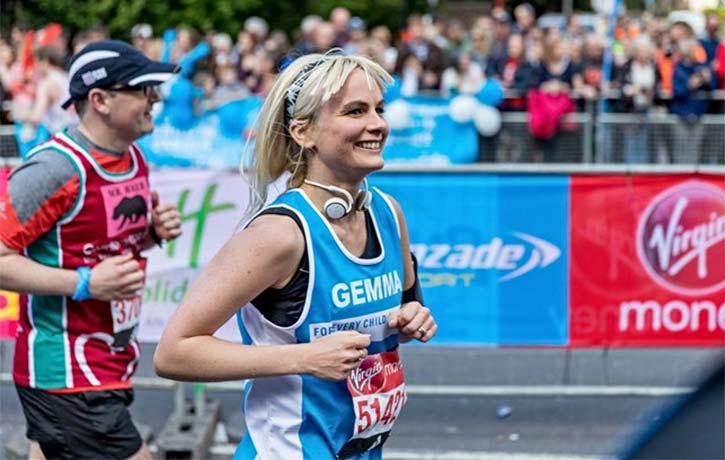
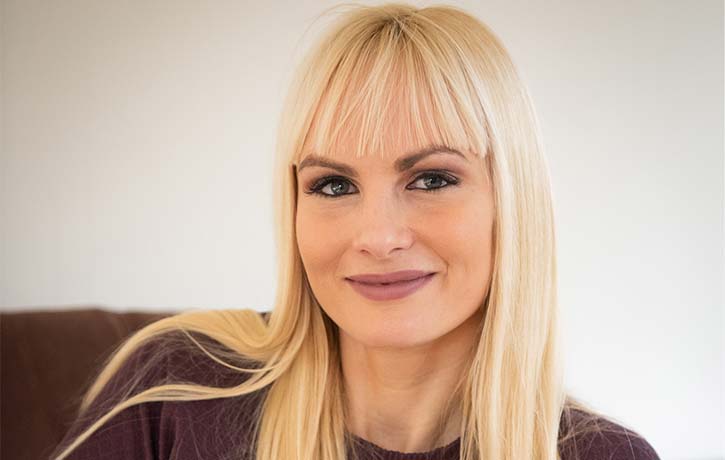
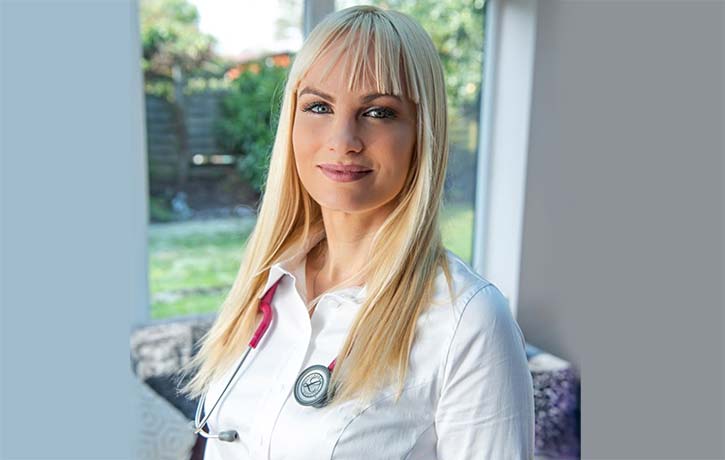
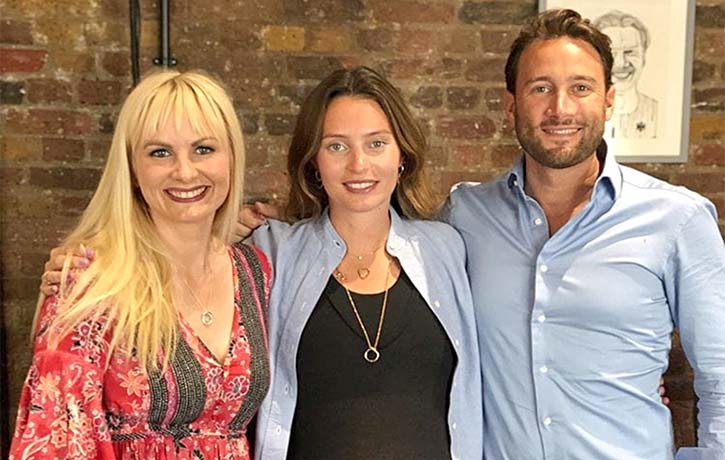
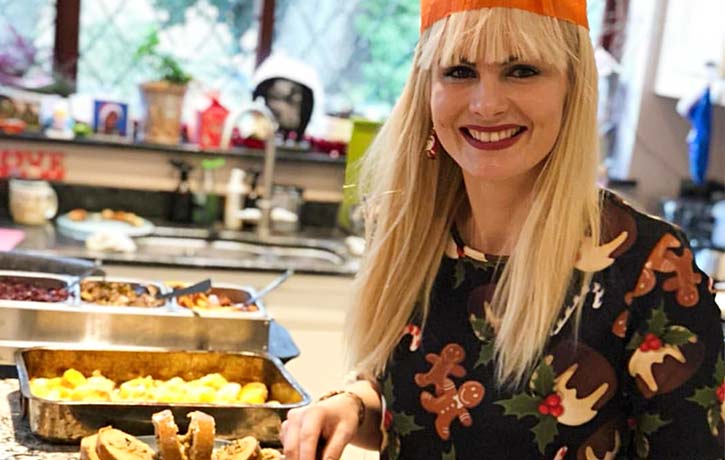
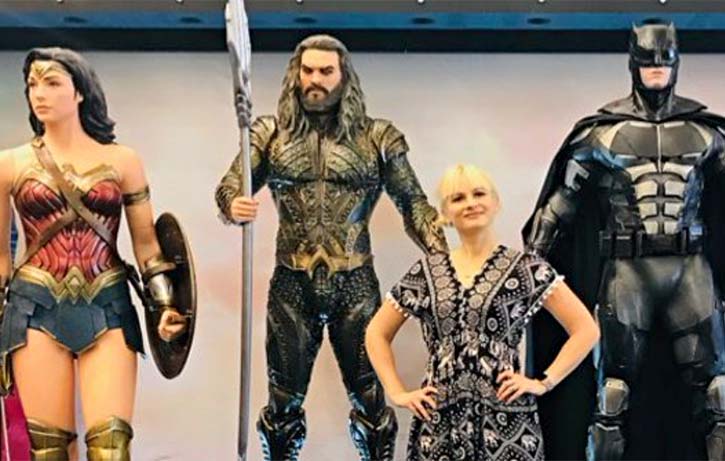

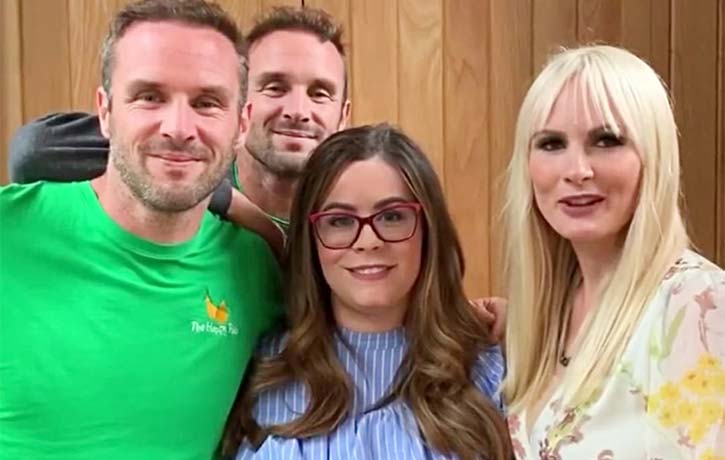
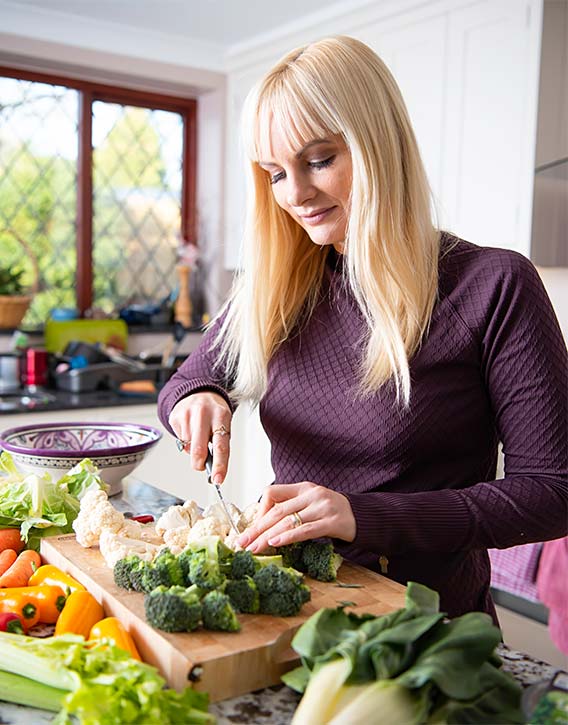
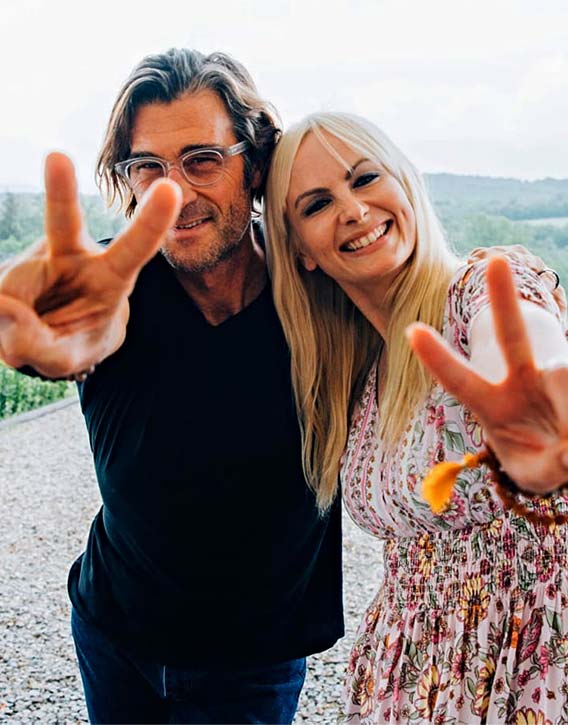

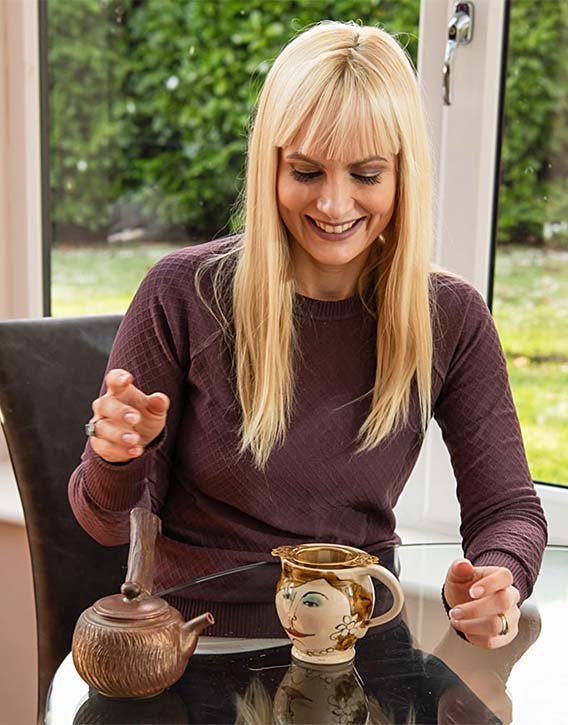
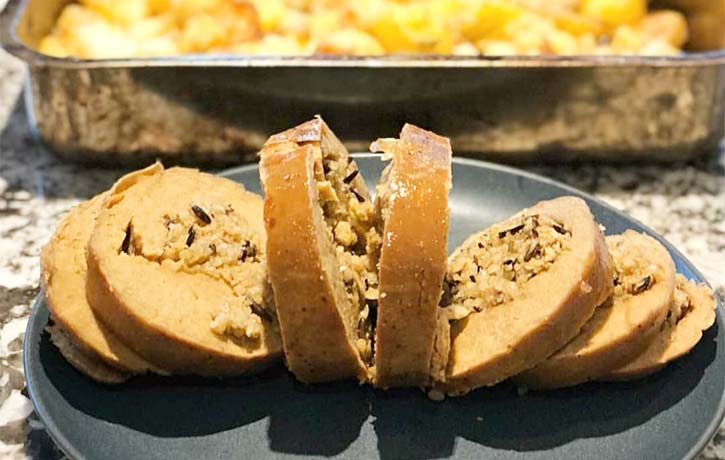


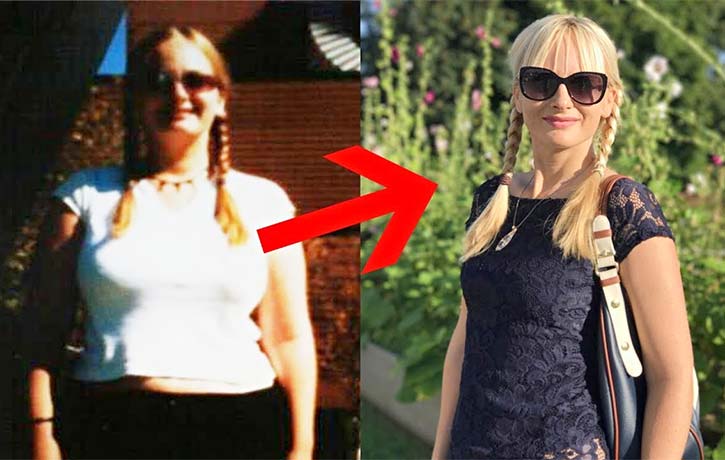
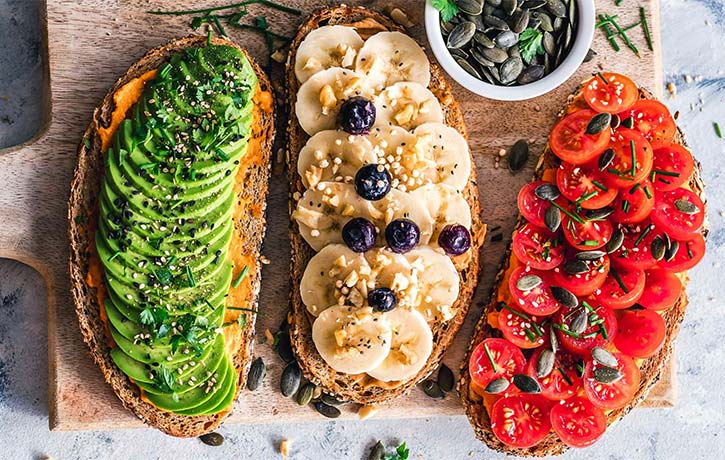
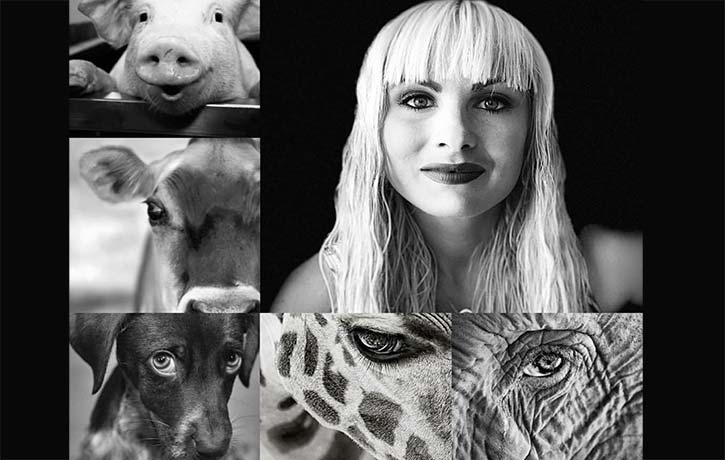


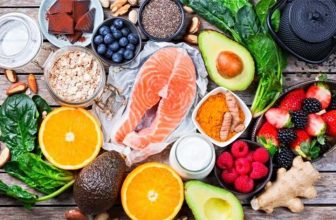
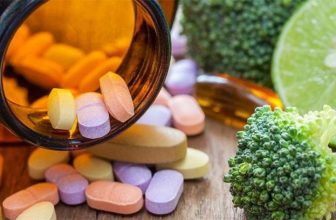
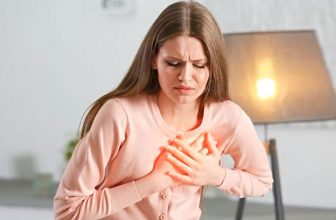
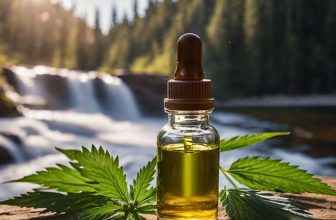



Great interview, and very useful take on health. Thank you 🙂